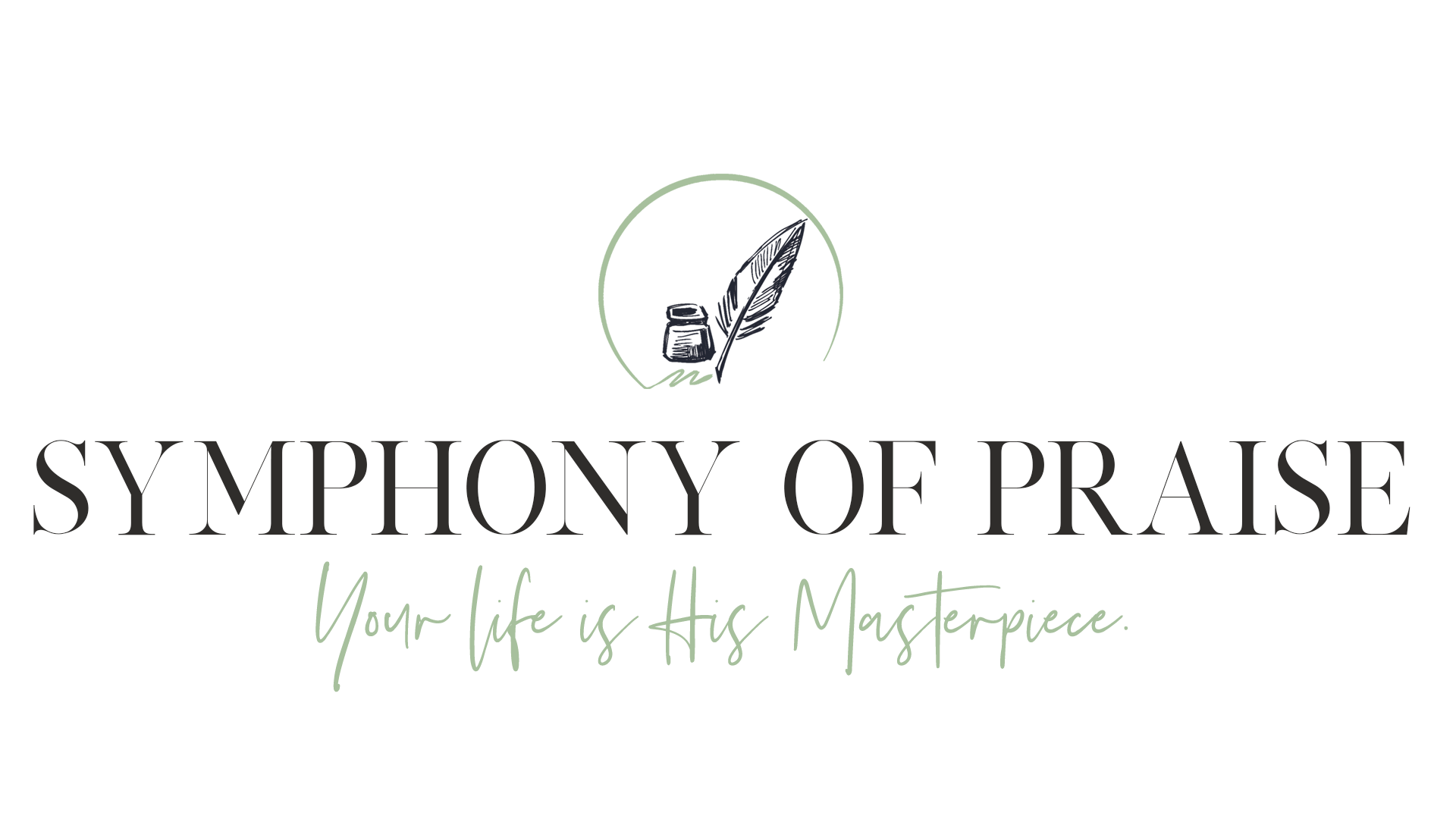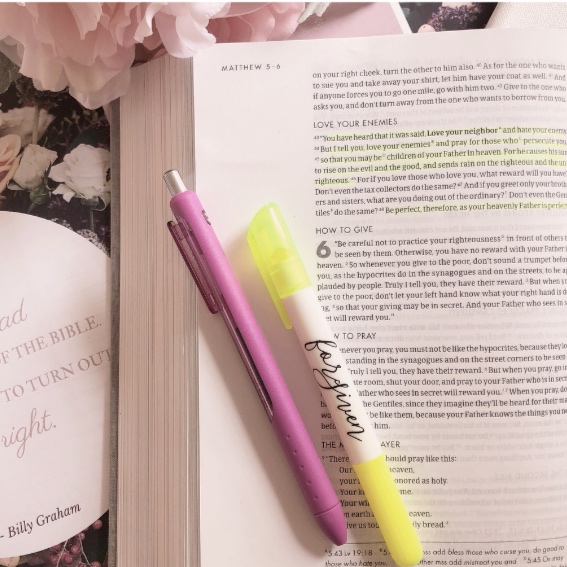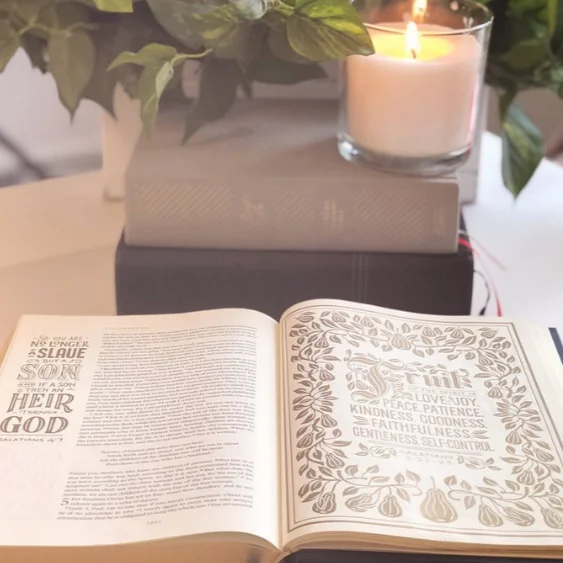How Do You Get the Most Out of Your Bible Study?
In 2017, I wrote the W.O.R.D. Bible study method to help you dig deeper into the Word of God. In this Four-Part Series, we are breaking down each part of the W.O.R.D. method to give you a better understanding of how you can get the most out of your Bible study time.
In Part One, we spoke about the importance of and how-to Inscribe (write) the Word. This is the first step in the W.O.R.D. method. Part One is packed with incredible stories, insight, and information. If you haven’t read that post start in Part One.
In today’s post, we are going to learn how to OBSERVE the key parts of a passage of Scripture. We are going to learn how to break down a passage of Scripture to get the key treasures the author is trying to teach us. We will do a passage together and I can show you this method in action.
For the original post on the W.O.R.D method and a brief overview of how this plan works, click here.
Part Two. Observe the Word.
Observing is my favorite part of this study! I love observing the key people, places, facts, and events of a passage. Get ready! This is going to be fun.
Psalm 119:33-34 "Teach me, O Lord, the way of Your statutes, And I shall keep it to the end. Give me understanding, and I shall keep Your law; Indeed, I shall observe it with my whole heart."
1. The Importance of UNDERSTANDING CONTEXT.
I believe one of the most dangerous ideas plaguing our modern Christian culture is taking the Bible out of context. We see a Pinterest verse or Instagram image that sounds good and apply it to our lives. This is dangerous, My Friend. You need to understand the context of a verse to know how and if it applies to your life.
Let's look at the importance of context.
a. God is Love.
1 John 4:8 tells us that "God is love." We can read that verse and think, "Great. If God is love, then He loves all parts of me." Or how many times have you heard, "God loves me just as I am. The Bible says God is love." Or “I can love whoever I want. Love is God!” We see this with our natural eyes as an ooey-gooey romantic kind of love. We are taking this passage out of context, and in most cases, distorting the Gospel.
Students of the Word should be asking, where does that verse sit in the entirety of 1 John 4, or better yet in the book of 1 John? What did the author (John the beloved) want us to learn? What was he trying to convey?
When we observe 1 John 4:8 and dig into that verse, we find that the Greek word for love in this passage is agapē. It is not a romantic or self-fulfilling love. Whenever you inscribe a passage of Scripture, you must read before and after that Scripture. If you do, you will see that 1 John 4:7-10, you see that the love John is talking about is self-sacrificing. A love that says, "I will go to the cross for you." As believers, to truly know the agape love of God, we must love each other.
God surely does love. But He doesn't love our sin. Love is just one of His attributes. Holy and righteous are others. We love each other out of the understanding that He first loved us; This is the context that 1 John 4:8 is written.
b. I can do everything through Him who gives me strength.
Philippians 4:13 is quoted on every Christian t-shirt and coffee mug. We throw it out there when we are starting a new job, when our kids are driving us crazy, when we try to move a ten-pound rock from the garden! Unfortunately, we are quoting this verse out of context.
Philippians 4:13 is a powerful verse, but in context, it takes on a different meaning. Like I said in the previous example, you must read before and after. What is Paul (the author of Philippians) saying in this verse? Who is he talking to and who was he trying to help?
In the preceding verses, Paul had just told his audience (the church in Philippi) that he had been through hell and back. He had been on the mountain and in the valley, and even in all of that, it was Christ who gave him strength. He had learned to be content.
In Philippians 4, Paul was writing about God's provision in the direst of circumstances. This verse isn't a promise that God will strengthen us to do whatever we want to do. God does not support everything we set our mind to. Phillippians 4:13 is the promise that we can do whatever God has called us to do, and in HIS strength, we can accomplish His will and learn to be content.
2. How do you OBSERVE CONTEXT?
There are five parts to Observing the Word. Who, what, when, where, and why. Answering these questions will help lead us to a better understanding of the context of Scripture.
Let's do a verse together.
"Wash yourselves; make yourselves clean; remove the evil of your deeds from before my eyes; cease to do evil, learn to do good; seek justice, correct oppression; bring justice to the fatherless, plead the widow's cause."
- Isaiah 1:16-17
WHO.
WHO is the author and WHO are they writing to? Are there any unique names mentioned? What is the meaning of those names? You should ask yourself these questions each time you study a passage of Scripture.
Who is the author? In Isaiah 1:16-17, the author is Isaiah. He is writing the prophecies of the Lord. Technically, I guess you can say that the author is God since these are His words through Isaiah, but then we can say that about the entirety of the Scriptures can't we? (2 Timothy 3:16-17)
Who is he writing to? The people of Israel and Judah. Isaiah WAS NOT writing to you or me, and the prophecies do not apply directly to us. HOWEVER, there are amazing spiritual truths to be found throughout this verse that DOES APPLY to us today. There are lessons that we can learn from the mistakes of Judah and Israel and the kings that ruled them.
WHAT.
What type of genre is this book? (You can find a full list of genres and books here.)
Isaiah is a book of Old Testament prophecy. This lets me know that these prophecies were not written to me, but the people of Israel and Judah. However, I can learn from their mistakes. I can see the attributes of God, which never change. I can see my sin mirrored in theirs, and I can learn how to repent and turn from my evil ways.
WHEN.
When was the book written?
Often, we can find the date of the book in the text. Isaiah 1:1 says that he prophesied: “in the days of Uzziah, Jotham, Ahaz, and Hezekiah, kings of Judah.” We can trace that back to around 700BC. This was the time of Isaiah 1. Later on in the book, we see that Isaiah was writing at the end of his life.
WHERE.
Where was the book written? Are there any particular places named? What is the meaning of those names?
Isaiah prophesied in and around Judah. He probably wrote this book in Jerusalem as it was the center of Judah and the location of the temple before it was destroyed.
WHY.
Why did the author write this book? What is the purpose? What are the themes?
You will find that numerous themes are running through the books and passages you will read. In this particular case, Isaiah is prophesying to the people of Judah, warning them to turn from their wicked ways. Isaiah also has numerous prophesies concerning the coming Messiah.
3. Where do I get this information?
There are numerous sources you could find to help get a deeper understanding of the context of the verse. These are the ones I recommend.
THE LIFE APPLICATION STUDY BIBLE. My favorite is the New King James Version. This Bible is my favorite resource and one I've been using for years. Click here to purchase yours.
THE ESV STUDY BIBLE. I recently purchased this Bible, and it is quickly becoming my go-to study resource. It is a fabulous translation with over 240 full-color maps and illustrations and a full concordance. Click here for an example.
The MOODY BIBLE COMMENTARY is another go-to resource for studying the Scriptures and understanding how to apply them to our lives. Click here to check it out.
THE BLUE LETTER BIBLE is a free online resource that has numerous Bible study tools and commentaries, including The Strong's Concordance.
Don't feel intimidated at OBSERVING the Word. The resources above will help, and once you start, it will become second-nature. Observing is such a crucial step in studying the Word of God, and I hope that this post clarified the importance of context and how to observe the Word with clarity.
In Part Three, we will discuss RELEVANCE and how to apply the Word to our lives.





